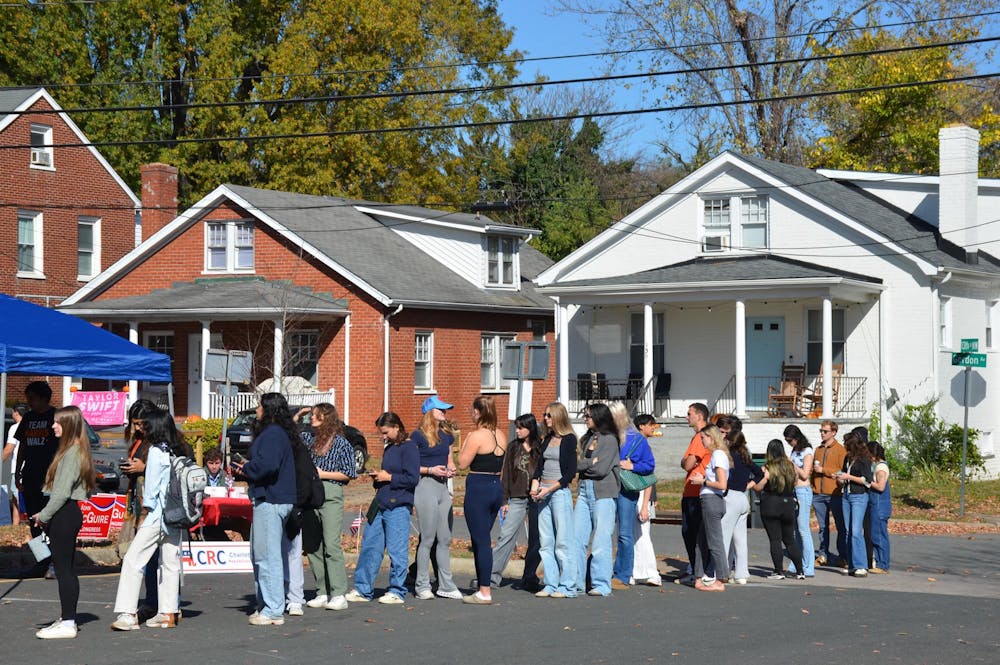Recently, Gov. Glenn Youngkin found his greatest ally in his efforts to disenfranchise Virginia’s voters — the Supreme Court, which decided to delay their ruling on Virginia’s voter purges. This effectively allowed eleventh-hour removals to continue. For the past few months, the VDOE purged 1,600 voters from voter registration rolls under the pretense of removing noncitizens — a demographic that Youngkin incorrectly blames for mass voter fraud. In successfully defending these practices and garnering the tacit support of the Supreme Court, Youngkin once again abandoned his duty to protect Virginian voters’ rights, setting a dangerous precedent for future elections.
The term voter purge calls to mind images of dystopia and anarchy. And while the outcome of this SCOTUS decision may very well manifest these ideas, voter purges are not always an opaque and illegally conducted process. State governments across the country compare Department of Motor Vehicles records with voter registration rolls to confirm that voters are alive, living in the state, U.S. citizens and above the age of 18. This is standard bureaucratic practice.
Therefore, what is concerning is not the fact that purges are occurring. Rather, what is concerning is that the Virginia Department of Elections is engaging in these purges past the Quiet Period Provision — the 90 days leading up to the election. The National Voter Registration Act — a bill that enhances voters’ access to the ballot box — sets this provision in place so that any investigation must occur 90 days before Election Day. In this way, the NVRA ensures that purged voters have sufficient time to be informed of their disenfranchisement and adjust their registration plans accordingly. Disenfranchising 1,600 Virginians within these 90 days not only contradicts this provision but also likely leads to thousands of more Virginians feeling uncertain about their registration status.
In conducting these purges, Youngkin has specifically targeted noncitizens with repeated and unsubstantiated fear-mongering about illegal immigrants voting in Virginia. Not only do these claims rely upon anti-immigrant vitriol, they are also woefully unfounded. Virginia has only had one case of illegal voting in the past two years, with none involving issues of citizenship — though, if Governor Youngkin’s son had his way, there would be more. If VDOE purges voter registration based only on those who might be noncitizens — an uncertainty to which they have admitted — there is no way to avoid racial prejudice in the impact of these purges.
When the process is done correctly and without bias, voter purges take an immense amount of time and research. Purging within the 90 days before Election Day and foregrounding noncitizens as a cabal of illegally registered voters, one can easily imagine that Virginia’s voters could be targeted on identity markers like ethnic last names rather than on the reality of their eligibility. Such incendiary rhetoric proves the reasoning behind the creation of the NVRA — one anti-immigrant governor should not make the difference between the integrity of the electoral system and the suffrage of naturalized citizens.
This concerning year of purges is no aberration. In fact, mucking up voter registration infrastructure seems to be Youngkin’s yearly pre-Thanksgiving gift to the Commonwealth. In 2022, VDOE realized that thousands of voters failed to make it onto the online voter registration system only a week before midterms. And in 2023, VDOE scrambled to add back eligible voters for the primary after wrongfully stating that certain voters had felony convictions. If every single October of one’s gubernatorial term is met with a scandal about inappropriate voter disenfranchisement, it is time to tell it like it is — this governor ideologically thrives off of select citizens being deprived of their right to vote.
By annually removing voters who should be eligible, VDOE tangibly impacts trust in the system beyond simply one election. If the purges are done 100 percent correctly — which seldom occurs in such a complicated system — that would be one thing. However, Youngkin has shown himself to be chronically unreliable in directing voter purges, wielding VDOE as a tool for his own political machinations. This year’s actions will further degrade trust in a system already lacking it. And this increasing lack of trust presents perhaps the most significant barrier to voter turnout — those who do not trust a system are less likely to participate in it. In this way, this seemingly small purge will have myriad impacts on Virginia’s local, state and federal elections, especially jeopardizing local and state elections which are already undersubscribed.
Youngkin wants to kick it old-school — “kick it” as in disenfranchising hundreds of Virginia’s voters, and “old-school” as in returning to Virginia’s former ranking as the 49th easiest state to vote in. Using purges as a political tool to remove eligible voters, the governor pioneers a new way of undermining the state’s contemporary reputation for electoral integrity. But Youngkin is not the only culprit here — through their Notes app apology for a delay, SCOTUS approves of the governor’s method with no consideration for its deleterious implications. Such a precedent will wrongfully allow voter purges to become a political tool of chaos, uncertainty and disenfranchisement around election season, rather than a way to continuously refurbish voter eligibility. It is only a matter of time before other states become inspired.
Scarlett Sullivan is a senior opinion columnist for The Cavalier Daily. She can be reached at opinion@cavalierdaily.com.
The opinions expressed in this column are not necessarily those of The Cavalier Daily. Columns represent the views of the authors alone.







